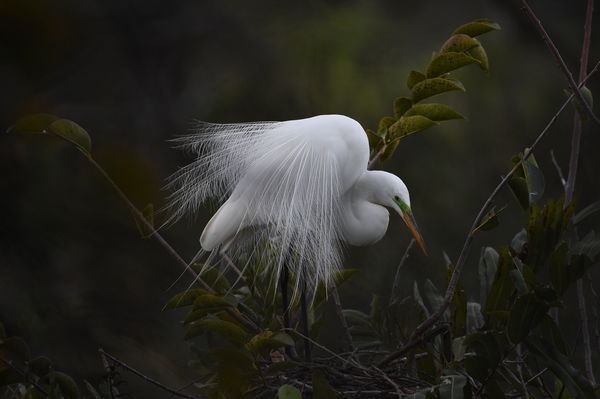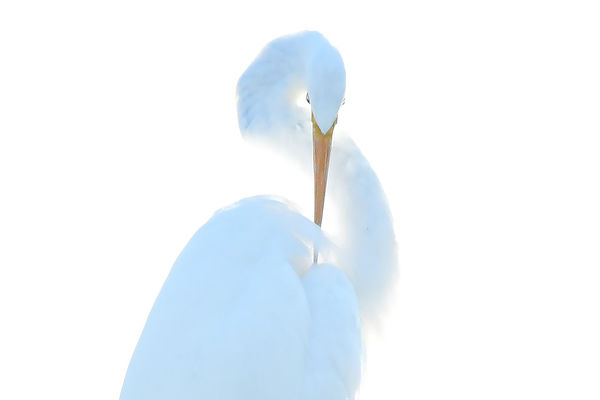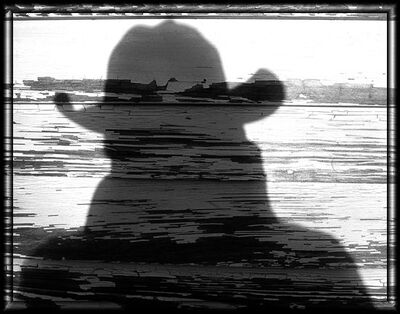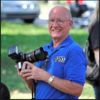How important is it to get the "correct exposure"?
Mar 30, 2019 22:57:48 #
srt101fan wrote:
Many folks here say or imply that getting the &quo... (show quote)
For most images, proper exposure is avoiding blown highlights for those areas that are important to your image. Sometimes this results in images that look under/over exposed in the middle tones. If you shoot with the intent of getting as much information in an image as you can, and fully expecting to do some post processing to bring out the best of the image, it is properly exposed, even if the unprocessed image looks dark or light. All too often you'll hear the term SOOC - which is complete and utter nonsense, unless you have 100% control over the lighting, where SOOC is not only possible but a practical approach. How you get there makes no difference - manual, auto ISO, A, S, TV, ExpComp, etc etc etc, bracketing - as long as your image works. The result will be good if you have a proper exposure, and there is no way anyone can tell what method you used to get there - so it doesn't matter at all. Most photographers, especially those not shooting in studio conditions, should expect to do some post processing to make images look finished. I really have no patience for SOOC images that look, no surprise here - unfinished. And those are really easy to spot.
Mar 30, 2019 23:03:59 #
I'm a novice, just 6 months off full Auto & 1st time with a DSLR, so my opnions don't usually matter uch here, but since this topic seems aimed at the needs of novices, here's my 2 cents. I went to Manual with auto WB straight from full Auto precisely so I could learn the roles of aperture, ISO & shutter speed in making a good exposure. I figured if I could do that on a regular basis, I'd know when & why to use aperture or shutter priority.
6 months later I find I can make good exposures but what send most shots to the Trash is focus.
Ignoring the choice of artistic soft focus effects, it's very clear to me that without great focus I'm not going to end up with a good result no matter what I do, before or after the shot.
I'm finding it vastly more difficult to get a handle on a 51-point AF system than I did the exposure triangle, WB & composition.
6 months later I find I can make good exposures but what send most shots to the Trash is focus.
Ignoring the choice of artistic soft focus effects, it's very clear to me that without great focus I'm not going to end up with a good result no matter what I do, before or after the shot.
I'm finding it vastly more difficult to get a handle on a 51-point AF system than I did the exposure triangle, WB & composition.
Mar 30, 2019 23:10:12 #
larryepage
Loc: North Texas area
I believe that proper exposure is the first of several requirements for a good photograph. But I think that does not require shooting in manual. And it doesn't require a beautiful histogram either. It doesn't even require that there be no blown highlights.
It does require the proper exposure for the result being sought. It also requires starting with the proper metering method for the situation. Or the proper adjustment process if the best suited metering mode isn't available.
And yes, focus is important too. But it involves a lot fewer variables. That's the main reason I list it second, not first. While it takes a lot of care and technique, it is easier to achieve (at least most of the time).
It does require the proper exposure for the result being sought. It also requires starting with the proper metering method for the situation. Or the proper adjustment process if the best suited metering mode isn't available.
And yes, focus is important too. But it involves a lot fewer variables. That's the main reason I list it second, not first. While it takes a lot of care and technique, it is easier to achieve (at least most of the time).
Mar 30, 2019 23:11:16 #
srt101fan wrote:
No; I'm not going to post questions on the importa... (show quote)
As I pointed out it would be the same no matter what element you chose. Having another post to discuss exposure without actually discussing exposer is right out of Chris's play book. In fact Chris uses the exact words all the time, 'based on my reading of UHH posts.' Then instead of responding to those threads, lets have one that questions why there are so many others on the topic.
I meant no disrespect to you. It just struck me the wrong way. I apologize if I offended you.
---
Mar 31, 2019 01:30:52 #
pesfls wrote:
I think they’re all important. The less manipulations in pp the better. Over manipulation screams when you see it in an image.
That is too limiting. I look at the altered images I did 5 years ago, and I shudder when compared to my workflow results today. There is more to this than what the camera captured when the shutter button is pressed.
Mar 31, 2019 02:14:57 #
srt101fan wrote:
Many folks here say or imply that getting the &quo... (show quote)
The "correct" exposure does not guarantee a good image, the appropriate exposure is the most important one, it all depends on the intend of the photographer, so the "correct" exposure is not always wanted!
Mar 31, 2019 06:10:30 #
pesfls wrote:
I think they’re all important. The less manipulations in pp the better. Over manipulation screams when you see it in an image.
So true, and you see examples of over-processing frequently in the gallery here.
Mar 31, 2019 06:33:12 #
You can have a perfect DOF, perfect focus, perfect composition, perfect subject but if your exposure is off you have nothing. No such a thing as a perfect exposure in post processing, once we loose highlight details there is no post processing that will bring those details back.
Mar 31, 2019 06:42:47 #
srt101fan wrote:
Many folks here say or imply that getting the &quo... (show quote)
"Proper exposure" is a good goal seeing as it is the best SOC material to work with.
Mar 31, 2019 06:50:39 #
Mar 31, 2019 06:58:55 #
Bayouguy
Loc: From Chauvin living in North Carolina
srt101fan wrote:
Many folks here say or imply that getting the &quo... (show quote)
My humble opinion Composition and then shoot for the least amount of editing .
Mar 31, 2019 07:05:25 #
billnikon
Loc: Pennsylvania/Ohio/Florida/Maui/Oregon/Vermont
srt101fan wrote:
Many folks here say or imply that getting the &quo... (show quote)
I try to get the exposure right FOR MY EYES, not the camera's. I commonly use Aperture priority and exposure compensation to get the exposure right IN MY EYES.
For me the correct exposure may be what other's consider overexposed or underexposed. But, IN MY EYES, it is the correct exposure. The following are some examples of what, in my eyes, are correct exposures.
And yes, I can do work in post, put it is usually for other things besides exposure. And I use JEPG. and I find it works really well for me even in post.


Mar 31, 2019 07:15:14 #
Bayouguy
Loc: From Chauvin living in North Carolina
billnikon wrote:
I try to get the exposure right FOR MY EYES, not t... (show quote)
Very nice shots...all keepers

Mar 31, 2019 07:35:18 #
srt101fan wrote:
Many folks here say or imply that getting the &quo... (show quote)
Getting the Exposure correct is just one important aspect of good photography. I prefer to get the image as near perfect as possible right out of the camera because it requires less post editing. I average 900 - 1200 photos a week. I don't have enough hours in a week to correct that many photos. I know a lot of photographers that use the "program" mode, which is pretty much the Auto Mode IMO. When using Program Mode the camera may not shoot the frame fast enough, or the Aperture may be too wide open for the DOF you want or a number of other issues come up when using a "auto" Mode. A photo that is blurry (not shot fast enough) is useless to me, unless that is the look I was going for. I prefer to have a bit more control over my "exposure", including sharpness and DOF. I use either Shutter Priority or Manual 100% of the time, it saves me time and work in the long run.
Mar 31, 2019 07:38:35 #
I try to get a "good" exposure, which is relative, initially.
If it doesn't work, try again if I can. Yes, there is NOTHING wrong with "chimping".
I adjust in post if I desire.
I'm not obsessed with getting a shot perfect in camera.
If it doesn't work, try again if I can. Yes, there is NOTHING wrong with "chimping".
I adjust in post if I desire.
I'm not obsessed with getting a shot perfect in camera.
If you want to reply, then register here. Registration is free and your account is created instantly, so you can post right away.







